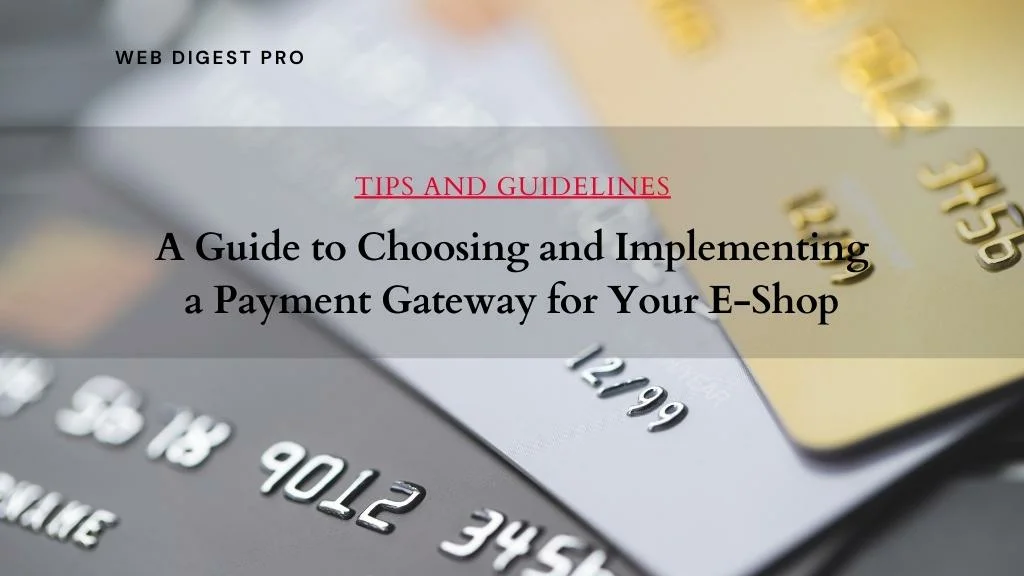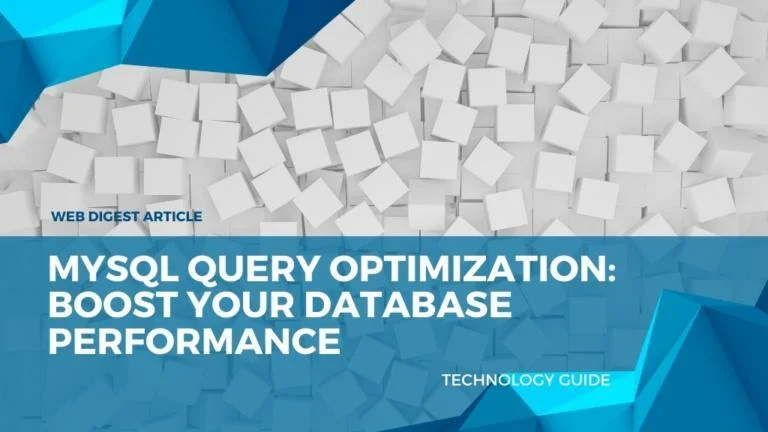When processing a payment, you want to be sure that it is smooth and secure because this goes a long way in building credible trust with your customer which boosts sales. At its core, this is a payment gateway — the service that makes sure payments between consumers and businesses alike are secure. So let us break it all down for you in this complete guide: what are payment gateways, their functioning and how to choose one for an online store.
What is a Payment Gateway?
Payment gateways offer crucial traits like encryption and tokenization that secure personal information. Encryption transforms data into secure versions that are only legible to authorized individuals, whereas tokenization looks up sensitive details with a unique ID or token so as to minimize the chances of any data compromise. Payment gateways meet with the conditions or obligations outlined by Payment Card Industry Data Security Standard (PCI DSS) that ensure all data on transactions are protected using adequate controls and a high level of security standards while dealing with payment information.
Benefits of Using a Payment Gateway
Enhanced Security
Strong security is among the main reasons to use a payment gateway. Payment gateways use advanced encryption to keep your credit card numbers, and personal information, safe. In addition to this, payment gateways are feature-rich: they have advanced fraud detection and 3D Secure authentication combined with real-time transaction monitoring which adds security against fraudulent activities and unauthorized transactions!
Payment gateways also help to minimize the risk of fraud and also protect againt data breaches, which can damage a business’s reputation and incur financial losses. A secure payment process builds trust with customers, encouraging them to make purchases with confidence.
Multiple Payment Options
Modern consumers expect flexibility in payment methods. Payment gateways usually support various payment options, including credit/debit cards, and digital wallets. Multiple payment methods make businesses respond to diverse customer preferences and reduce cart abandonment rates.
Payment gateways can also support mobile payments, This flexibility allows customers to complete transactions using smartphones and tablets. This is essential for accommodating the growing number of mobile shoppers. Additionally, some gateways provide support for alternative payments like cryptocurrencies, which can attract tech-savvy customers and offer unique payment solutions.
Global Reach
To achieve global growth, businesses can use payment gateways that support multiple currencies and local payment methods. The convenience to allow customers to transact in their preferred currency further boosts the conversion rates.
Many gateways also offer currency conversion and language customization. These features help companies provide a more tailored shopping experience. Such capabilities are essential for businesses entering new markets and reaching a wider international audience. Meeting customers’ preferences for payment options and language is crucial for global success.
Faster Transaction Processing
Payment gateways make transactions quick and easy. Transaction are often complete in just a few seconds. Other useful features are one-click payments and the ability to save payment details for returning customers. These options help make the checkout process even more easier and increase customer satisfaction. Plus, most gateways are well designed to work perfectly on mobile devices, ensuring a smooth payment experience whether you’re using a smartphone, tablet, or desktop.
Popular Payment Gateway Providers
When choosing a payment gateway for your business, it’s helpful to explore well-known providers like the ones listed below. Each one has its own pricing structure, unique features, and benefits
PayPal
PayPal is internationally known and a trusted online payment gateway. It accepts almost every kind of credit card, debit card, and of course payments through a PayPal account. It is straightforward to implement and the interface is user-friendly. For this reason, small and medium sized businesses often choose it. Just keep in mind that its transaction fees, especially for international payments, can be on the higher side.
Stripe
Stripe is also highly praised for its flexibility and range of features. It supports many types of payments, including multiple credit/debit cards, support for digital wallets, and bank transfers. Due to its nature, the robust API architecture from Stripe will make it very customizable. It will be ideal for those businesses with complex payment needs and wanting to set up subscription billing and multi-party payments.
Square
Square offers an all-in-one payment solution that combines online and in-person transactions under one roof. For the businesses operating both physically and online, the flat-rate pricing sans any monthly fees is quite alluring. Square also provides invoicing, appointment scheduling among other feature, though the international support is not as good as some other providers.
Authorize.Net
Authorize.Net is renowned for its security and dependability. It supports complete fraud prevention tools, recurring billing, and advanced reporting. This gateway is ideal for large-scale businesses running huge volumes of transactions. However, the setup and monthly fees may be a little bit higher compared to other gateways.
2Checkout (Verifone)
2Checkout definitely provides a great solution to those businesses serving international customers by including extensive international support with options to display payment in local choices and multiple currencies. It also supports a great number of methods of payment and many different currencies. However, the fee structure is complex and thus less helpful for smaller businesses or low-volume companies.
Choosing a Payment Gateway
When choosing the right payment gateways to use with your business, here are a few key things to look at:
Transaction Fees
Understand the transaction fees associated with each payment gateway. Gateways typically charge a percentage of each transaction along with a fixed fee. Additional charges may include the cost of international transactions, currency conversions, and chargebacks. If your company holds many transactions, small differences in added fees can happen much faster. Comparing different structures of the fees is the best idea to find a budget-friendly gateway that suits your business.
Security and Compliance
Security is very important in online payment handling. Make sure the selected payment gateway provides service in compliance with PCI DSS standards and maintains strong security measures. Common modes of security are encryption, tokenization, and fraud detection tools. Additional security measures, such as CVV checks which protect against unauthorized transactions and minimize fraud risks are highly valued.
Integration Capabilities
Ensure that the payment gateway integrates smoothly with your existing systems. Many gateways offer integration options and developer tools to facilitate easy setup. For custom-built solutions, look for gateways with comprehensive APIs that allow for seamless integration. Compatibility with your current setup can streamline the payment process and reduce technical challenges.
Supported Payment Methods
Customers’ satisfaction would certainly increase the rate of conversion of possible customers into actual buyers with one-stop varied payments. Make sure the payment gateway supports major credit and debit cards, famous digital wallets, and mobile phone-based payments. If your business is spread across borders, then the gateway must offer multi-currency processing and also offer options for localized payments.
User Experience
It should offer an easy and seamless checkout experience. Furthermore, the extended capabilities that make up guest checkout, one-click payments, and mobile-optimized pay further enhance this user experience. Test the payment process for intuitiveness and efficiency from the customer’s point of view to reduce friction and enhance satisfaction.
How to Set Up a Payment Gateway
Setting up a payment gateway involves several steps to ensure a smooth implementation:
Create a Merchant Account
Most payment gateways require a merchant account through which the funds come in. A few gateways have an integrated merchant account, while others may ask you to integrate an account through a bank or a financial institution.
Register with the Payment Gateway
Sign up for an account with the chosen payment gateway provider. Provide the necessary business information and financial details to complete the registration process. This may include documentation such as tax identification numbers and bank account information.
Integrate the Gateway
Integrate the payment gateway with your website or application. This can be done through pre-built plugins for popular systems or manually using APIs for custom setups. Follow the provider’s integration instructions to ensure proper configuration.
Test Transactions
Before launching the gateway, conduct test transactions to verify that payments are processed correctly. Ensure that the payment gateway works as expected and resolves any issues identified during testing.
Launch and Monitor
Once testing is complete, enable the payment gateway on your live site. Continuously monitor the performance of the transactions and customer feedback to ensure smoothness and security in the payment process. Try to solve all issues as soon as possible for optimal functionality.
Conclusion
The selection of the appropriate payment gateway will ensure proper online transaction security and enhance customer experience. You can select a suitable gateway that fits your business needs by considering security, fees, capability for integration, and the payment methods supported. Some of the top providers for gateways are PayPal, Stripe, Square, and Authorize.Net, among many others, which can help with your needs by offering you a set of features. A well-chosen payment gateway supports not just secure transactions, but more sales, satisfied customers, and consequently the success of your online business.
Subscribe to our newsletter!











+ There are no comments
Add yours